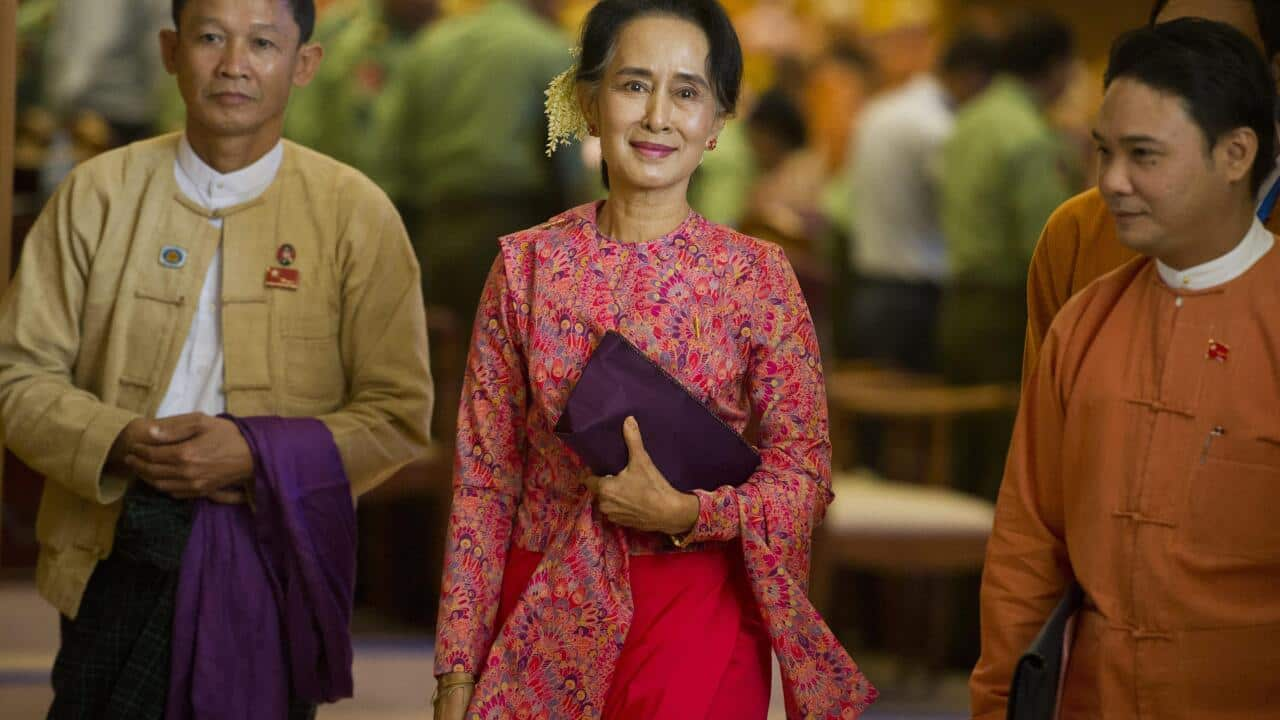The voting to fill 19 seats in the national and regional parliaments was seen as a test of the democracy icon's popularity after a bumpy first year in office.
Her National League for Democracy (NLD) stormed to power in a historic 2015 poll that ended half a century of brutal military rule.
But disillusionment with the administration has grown as the young government struggles to push through democratic reforms, kick-start the economy and ease unrest along the borders.
The NLD's comfortable majority was never threatened by Saturday's by-elections, with less than five percent of the population eligible to vote in races held mostly to fill seats emptied by politicians who took on ministerial posts.
Results that trickled in Sunday showed the party is still strong in its heartland areas. But it revealed a measure of discontent among Myanmar's ethnic minorities, who have long struggled under the rule of the Bamar majority to which Suu Kyi belongs.
The NLD fared well in its strongholds around the commercial capital Yangon and in central regions further north, winning seats in nine races, according to results announced by Union Election Commission chairman Hla Thein.
But it faced losses in more remote areas, including in ethnic minority regions where insurgent violence has continued despite Suu Kyi's promise to bring peace after decades of strife. The most embarrassing defeat was in the southern state of Mon, where the NLD lost a lower house seat to its main opposition -- the military-backed Union Solidarity and Development Party (USDP).
The most embarrassing defeat was in the southern state of Mon, where the NLD lost a lower house seat to its main opposition -- the military-backed Union Solidarity and Development Party (USDP).

Voters leave a polling station after casting their votes for by-elections in Kawhmu Township. Source: FRONTIER MYANMAR
The NLD had comfortably won that race just over a year ago when it trounced the USDP nationwide.
The NLD sparked mass protests in Mon last month by naming a local bridge after Suu Kyi's father -- a move seen as emblematic of the Bamar elite's steamrollering of minority cultures.
The NLD also came up short in a race in Rakhine, a western state embroiled in ethnic and religious conflict.
That lower house seat was taken by the chairman of the local Arakan National Party, a politician known for his hardline stance against the Muslim Rohingya.
The one-million strong Rohingya live mostly in Rakhine and are loathed by many Buddhists, who see them as outsiders.
Since October they have become the target of an army crackdown so brutal that UN investigators believe it may amount to a crime against humanity.
The crisis has posed a major moral challenge to Suu Kyi, who must contend with both international pressure to defend the Rohingya and hatred of the group by many at home.
She has faced international criticism for not speaking out against the alleged abuses.
Up in the northeast, an ethnic Shan party won several races held in areas where voting had been cancelled in 2015 because of unrest. The NLD and USDP also each took one regional parliament seat.
Clashes between the army and ethnic insurgents have since moved further north but continue to thwart the NLD's peace bid.
In a rare national address last week, Suu Kyi stressed her commitment to the nation but admitted that reforms had stalled in some areas.
Striking an unusually conciliatory note, she said the NLD "would be more than happy and ready to step aside" if there were others "more qualified than us to achieve better results".





